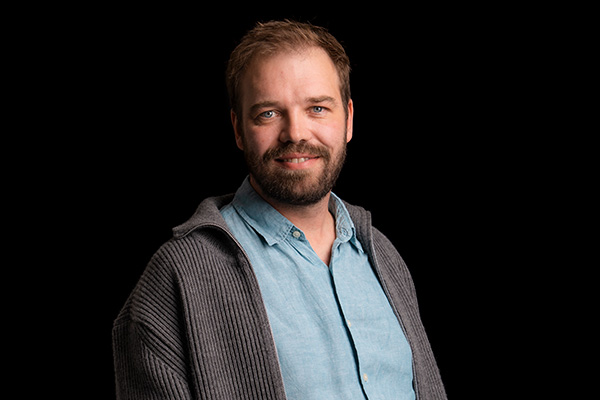Anders Anker Bjørk
Research leader

Project title
GRIT - GReenland's Ice in Transition
What is your project about?
The project is about Greenlandic glaciers and what happens when they melt. Many of the glaciers are losing ice through calving. This is when icebergs break off and float into the ocean. Once the glacier melts and shrinks it will eventually loose contact with the ocean and stop calving. This transition is very important but understudied scientifically. The transition is important as the glacier suddenly loses less mass as previously. When does this happen? How fast is the transition? And what happens afterwards? These are some of the questions I want to answer. This knowledge will then be used to improve the computer models that are used to predict future sea-level rise.
How did you become interested in your particular field of research?
I was lucky to find a study, Geography, which early on gave me some fantastic field work experiences. I was also lucky to come to Greenland for field work and got a great mentor that included me in the science – and then I was hooked. It is still a young research field and that also means that many cool discoveries are waiting, that is also a huge motivation for me.
What are the scientific challenges and perspectives in your project?
When you are working on understanding complex natural systems like the Greenlandic glaciers the challenges are endless. First of all, the dynamics of glaciers are extremely complex and there are still many things we do not know. Secondly, the glaciers are extremely remote and therefore we are often limited in the amount of data available. Once we are successful in our work, we are able to lay down another piece in the big puzzle that is all about understanding the glacial response to changes in climate.
What is your estimate of the impact, which your project may have to society in the long term?
Myself, my team, and all my good colleagues are all working super hard to understand the glacial system in order to deliver better predictions of the future sea-level. There is not a single project that can do this alone, but it is the sum of discoveries that we and others do that will take us to the next level. We want to give society accurate knowledge on when and how much the sea-level will rise. Apart from that, our work and our results are also a constant reminder to everyone on what humans are doing to our planet.
Which impact do you expect the Sapere Aude programme will have on your career as a researcher?
Receiving the Sapere Aude grant is a unique opportunity to try out big ideas. This type of research cannot be done alone, and therefore it is fantastic to get the chance to put together a strong team for the task. Furthermore, the Sapere Aude grant is a major pat on the back which gives me even more energy to continue this life in science.
Background and personal life
I live in Copenhagen with my family. With three children both big and small, my free time is quickly filled up and I like it. In the future I would like to build up some drawing skills, then I would draw dramatic Greenlandic landscapes, beautiful sailboats, and my kids.
View all research leaders here
Research institution
University of Copenhagen
Research field
Geography
City of your current residence
Copenhagen
High school
Svendborg Gymnasium
